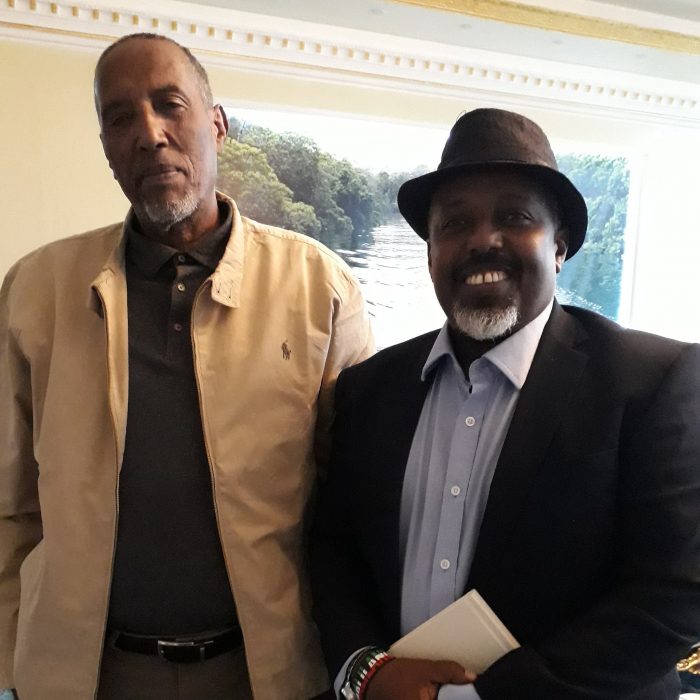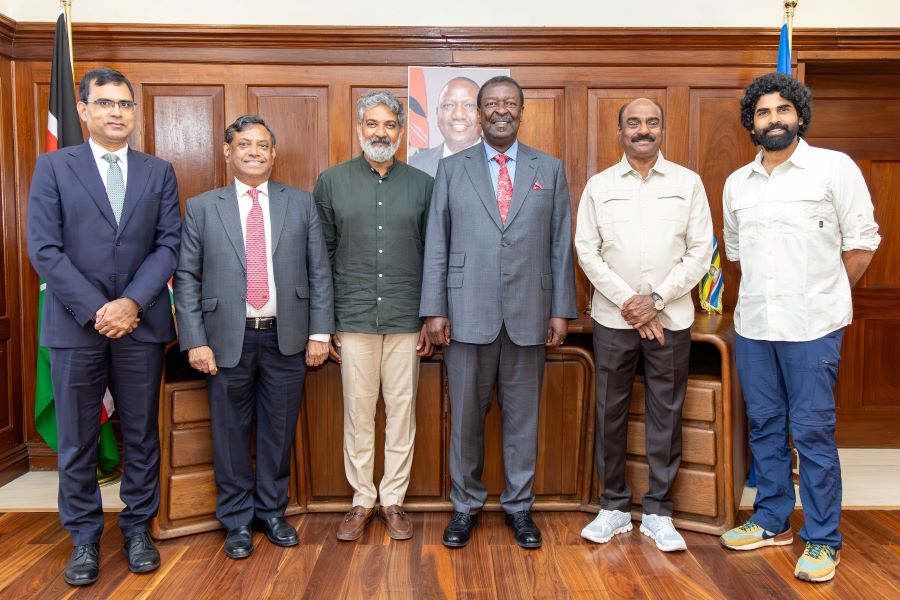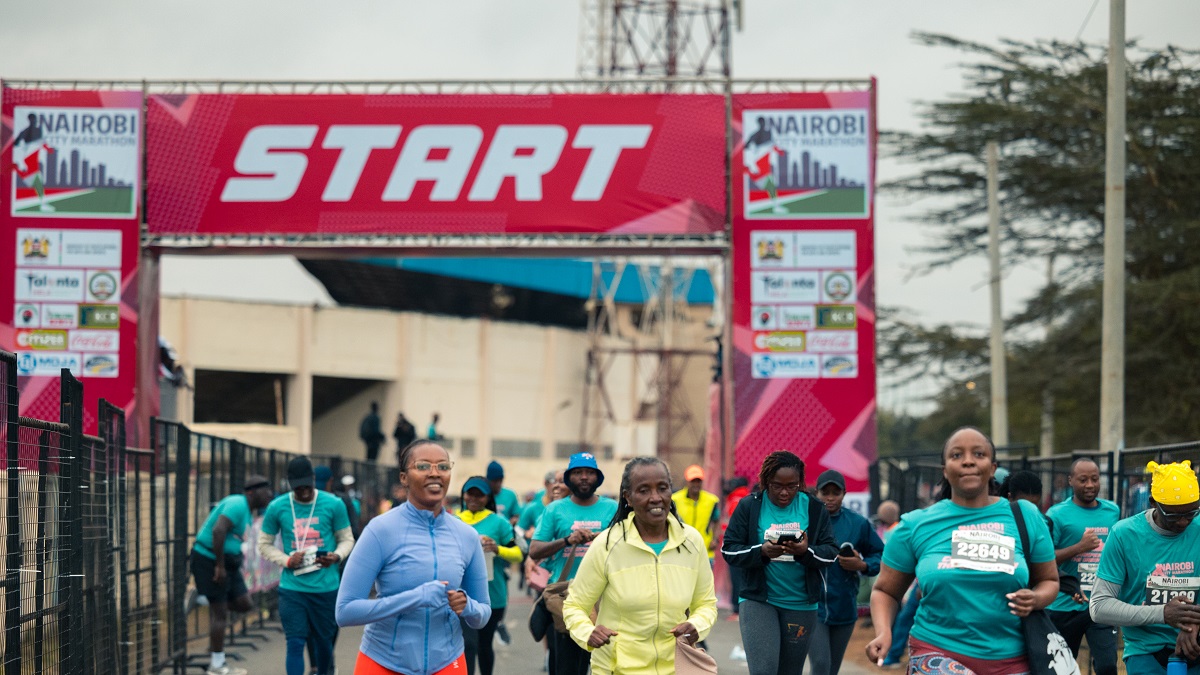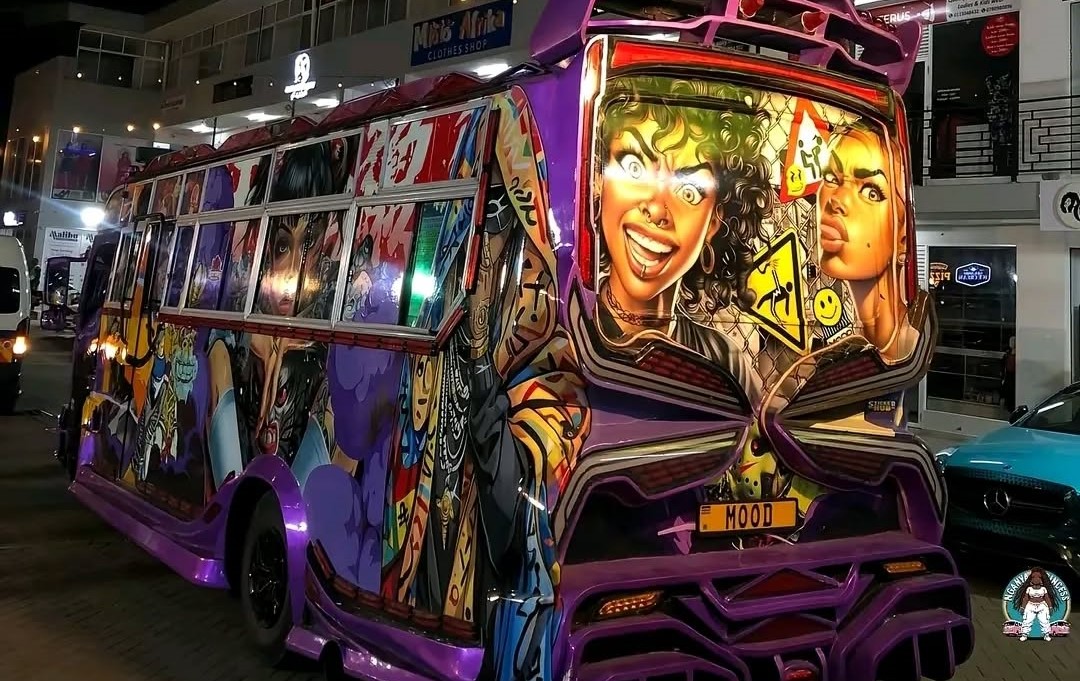Hargeysa International Book Festival is in its 12th year in 2019. It has been a tough journey of many joys since it was first held. The enduring vision of Dr Jama Musse Jama and his team to build a resilient arts and cultural celebration has not only seen HIBF become an enviable international phenomenon but has also helped open up Somaliland to the world. In 2017, during the 10th anniversary, our writer Hillary Namunyu spoke to him, and for the first time we publish this timeless interview.
Tell us about Hargeysa International Book Fair. What exactly happens there? It sounds
more of a festival than just a showcasing of books.
You are correct; Hargeysa International Book Fair is a celebration of books, arts and culture in Somaliland. There is so much that happens, both in the ten official days of the festival and all year around as an institution. Somali arts, culture and the language is such an incredibly rich subject to work with, that through HIBF we have been able to contribute to knowledge production as a whole. So through out the year we publish books in the Somali language, translate classical works and host a range of education events and conferences including our upcoming Somali Studies Congress scheduled for 2018. Our core aim is the promotion of Somali culture and literature and within this we were able to include incredible diversity and include so much more into our festival and the Hargeysa Cultural Centre which we established in 2014.
You were celebrating Hargeysa @10 this year. What significant leaps have you experienced over the last ten years?
It has been an immense pleasure for me to see Hargeysa International Book Fair grow into this huge success, attracting over 100,000 local, regional and international guests since its inception. There is a dynamism, warmth and hunger for learning in Somaliland, which ensures that we do more than showcase books and it really has been an adventure.
We have made significant leaps over the years, this year alone we celebrated our 10th anniversary of the Hargeysa International Book Fair. But more importantly we have emerged over the years on the national and regional stage as a leading voice promoting literature, arts and culture and most visibly to all. I think the most significant leap has been the opening of the Hargeysa Cultural Centre in 2014 and securing our permanent new location in 2017 for our institution.
What is the inspiration behind Hargeysa International Book Fair? What inspires locals
to attend?
There was skepticism about the festival being organised in Hargeysa when we first started – we had experienced a devastating war and almost total physical and emotional destruction. Somaliland was and still is not recognised by the world and it was assumed that it has much more urgent priorities than hosting a book fair and arts festival. But we felt that Somaliland’s reconstruction should include a revival of its language, cultural and artistic institutions.

We strongly felt that to rebuild, deal with the past and for society to construct both its new identity and its collective history, the strong Somali tradition of poetry, dialogue and music was key. We were fortunate that key people in our society shared our views including politicians, freedom fighters, and well-known Somali artists who all lent us their names and voices. The locals were inspired by the mass focus on assembling well known Somali artists in one place to interact with them, to hear their work first hand and to do something together with members of their community. Over the years literacy rates have improved in Somaliland, and more and more we are seeing that our audience are engaged because #HIBF helps them develop, widen their contacts, develop their own skills and meet experts in their desired fields.
Regardless of our inspirations, without the support of the community and the Somaliland Government, HIBF would not have been possible; the government provides support in many ways, contributing to the content, the events, opening the book fair and directly participating, promoting it both in Somaliland and outside of it. Likewise the public support their local artists, welcome and attend events of international authors, they buy books and young people volunteer to help out from all over the country.
Many people, whenever they hear about Somaliland, they can’t really trace where it is on a map. The confusion with the larger Somalia, and the general thought that nothing good can come out of there. Have you ever experienced that?
We have to a certain extent – there are many constraints by governments who advise their citizens against travel to the Somali speaking region as whole, and of course the confusion of Somalia and Somaliland – but the literature, arts and cultural sector is globally one of the most advanced and opened minded sectors, as such we have for example never had a guest who declined an invitation to come to Hargeysa because of fears, but we’ve had many guests who we’ve had to reassure, provide additional information to and most importantly recommendation and endorsements from other artists who they know and respect who has been or is coming to the festival. Our guests when they leave continue their engagement with #HIBF and other institutions they meet while they are here and they are the most genuine ambassadors for this young nation.

An important aspect of our introducing Somaliland as it were, is the addition of the guest country element to the festival; this is the fifth year we have dedicated the festival to a guest country, which means that we pay special attention to the literature and art of that country. In addition to Kenya, Djibouti and Malawi, Nigeria, Ghana, we have this year celebrated the art of and artists from South Africa. It has meant that Somaliland was in the local news of these guest country and their citizens were able to see their poets, writers, artists and journalists meet ours in Somaliland.
When we had Malawi as guest country for example, HIBF was streamed all six days in their daily broadcasts – it was the first time people in Somaliland had heard about Malawi and likewise, it was the first time they had heard of Somaliland! This informal cross cultural sharing has opened up Somaliland to the rest of African continent and the world, at the same time allowing people in Somaliland to have a wider, more global experience.
This year, you had artists from five countries outside of Somaliland. How do you compare
that with your first ever book fair? Did you see yourselves coming this far?
The festival initially started with a local focus; reviving Somali arts, literature and culture after mass destruction during the bombardment by the Somalia regime in the 1980s and early 1990s.
Pulling off such a huge and historic gathering every year demands a lot of passion, dedication, energy and creativity to start conversations, encourage dialogue and attract the curiosity and following of a dedicated audience. We were inspired and encouraged by the fantastic response of the audience, the local ownership and passion for literature and traditional means of expression. When we started ten years ago, the arts and culture scene in Somaliland was grossly underdeveloped; there were few public libraries and even fewer platforms for people to gather and exchange ideas. It just so happens that we utilise the arts as a tool to facilitate this exchange, but #HIBF brings the community together to discuss issues of social significance – we didn’t expect it to become such huge success on so many local levels and we certainly didn’t anticipate the international acclaim it has achieved.
Moreover, now that the festival is more established, and as an institution we not only create an opportunity for talented people to present their work and get recognition for their endeavours throughout the year in Somaliland, but through our courses (on creative writing, music, arts and photography) we go on to build their skills and knowledge so that they can grow creatively and even seek employment opportunities – it is these core activities that contribute to our society and nation.
We’ve heard rumours … the organisers of Hargeysa International Book Fair are building
a permanent space where the book festival will be happening in the future. And
it is an enviable one!
Yes, yes finally this year in March we were able to secure land in the centre of Hargeysa to build the Hargeysa Cultural centre. We very quickly started building parts of it and actually had a few events there for #HIBF2017, but we hope it will be complete in time for #HIBF2018. Finding a permanent space has been one of our core goals and we are so happy that finally we were able to do this.
How has the festival or book fair impacted the general reading culture in Somaliland?
Has the impact, if any, diffused into the larger Somalia? Have you achieved
your objective this far?
The annual fair has enabled us to lobby for and promote a culture of reading and writing with a permanent cultural centre in the heart of Hargeysa and year round programme of literature and cultural activities. The Centre has been well received and through interaction with local councils, we have been able to support the establishment of libraries in the regions, which are now managed by government funds.
We have become a hub for Somali culture and dialogue amongst the Somali community, at a local, national and international level. With improved educational institutions, with better government budgets and the emergence of a new educated generation, we are experiencing in increase in the demand for our activities and increasing audience each year for the annual celebration. This year alone we received 55 new books published by young Somali’s wanting to present their work at the festival – when we started, we had to commission and publish Somali books in advance for the festival.
I don’t feel that we can fully achieve our aims and objectives, but we have certainly made a dent in Somaliland in promoting literature, safekeeping and documentation of artefacts, books, and cassettes, which we have been documenting and digitalised for access (online) to the general population. We have a decade of great work behind us, but for this young nation, there is still so much to do and so much to achieve together.
Have you interacted with other festivals in the region before? What’s your experience
and comparison with Hargeysa?
Establishing a literary event takes a lot of effort, dedication, and funds are not always easily available to support these efforts, our direct interventions and work has been focused solely in Somaliland, but we’ve had requests from several countries to support the development of their own international book fair, including Malawi and Djibouti. #HIBF has also inspired similar events across the Somali speaking regions, such as in Garowe and Mogadishu.

In the last few years we have been invited to participate in regional festivals including Stormoja in Nairobi, IRICA Activities in Djibouti and amongst the Somali diaspora through HCC’s participation in Somali Heritage Week in Nairobi and Somali Week in London. I feel like it is difficult to compare them because they are just so different in content and in its audience, and I think this is the amazing thing about arts, culture and literature – it is so different and takes so many forms that you will never be bored, nor will you ever feel that you’ve seen enough!
What are your immediate plans for the book fair next year? What new things will you be
introducing?
It is the beginning of a new decade. I believe the celebration of the 10th anniversary was not an arrival but certainly a new starting point. If we campaigned for more reading and more writing among the young Somalilanders for ten years, and therefore we went quite well with the quantity, we will focus now on quality. We will introduce resident artist programmers to allow young African artists to go in-depth knowledge and art production in the continent. We are working with the theme of the year, and who will be next guest country. Art and culture are what makes human the human being, and they together constitute the shade of the soul of the individual. We will promote young Somalilanders, and Africans in general, to know better their souls and shape better their shadows for better world.
A parting short to everyone out there?
Don’t underestimate art, culture and literatures ability to bring joy, sense of identity and belonging. It is one of the core ways to develop and move our societies and nations forward in ideas, innovation and create the space for dialogue and development.




